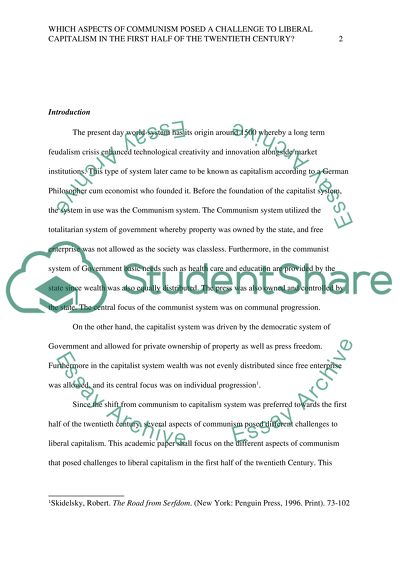Cite this document
(“Which aspects of Communism posed a challenge to liberal capitalism in Essay”, n.d.)
Which aspects of Communism posed a challenge to liberal capitalism in Essay. Retrieved from https://studentshare.org/history/1682727-which-aspects-of-communism-posed-a-challenge-to-liberal-capitalism-in-the-first-half-of-the-twentieth-century
Which aspects of Communism posed a challenge to liberal capitalism in Essay. Retrieved from https://studentshare.org/history/1682727-which-aspects-of-communism-posed-a-challenge-to-liberal-capitalism-in-the-first-half-of-the-twentieth-century
(Which Aspects of Communism Posed a Challenge to Liberal Capitalism in Essay)
Which Aspects of Communism Posed a Challenge to Liberal Capitalism in Essay. https://studentshare.org/history/1682727-which-aspects-of-communism-posed-a-challenge-to-liberal-capitalism-in-the-first-half-of-the-twentieth-century.
Which Aspects of Communism Posed a Challenge to Liberal Capitalism in Essay. https://studentshare.org/history/1682727-which-aspects-of-communism-posed-a-challenge-to-liberal-capitalism-in-the-first-half-of-the-twentieth-century.
“Which Aspects of Communism Posed a Challenge to Liberal Capitalism in Essay”, n.d. https://studentshare.org/history/1682727-which-aspects-of-communism-posed-a-challenge-to-liberal-capitalism-in-the-first-half-of-the-twentieth-century.


